Second IHRA plenary sessions held in Gothenburg
Published
The International Holocaust Remembrance Alliance (IHRA) has successfully concluded its second and final Plenary of the Swedish Presidency, which took place during four days in Gothenburg. The meetings, attended by experts, political representatives, and representatives of international organizations and civil society, inspired exchanges and developments in the field of Holocaust remembrance, education, and research under the Swedish Presidency’s motto “Together for Impact.”
The Swedish Minister for Culture, Parisa Liljestrand, addressed the Plenary, highlighting the importance of the IHRA’s collaborative work and stating that, “Working together is the best way to promote human rights and democracy.”
The sad reality of the passing of the survivor generation and its impact on Holocaust remembrance echoed throughout the four-day meetings, with IHRA Chair Ann Bernes noting in her welcoming address, “In an era where more and more survivors leave us, the mandate and work of the IHRA is more important than ever and I am confident in our ability to jointly rise to the challenge.”
IHRA Honorary Chair, Professor Yehuda Bauer, addressed the Plenary, warning of the rising tide of dangerous nationalism and reminding Member Countries that, “We are not living in a post-Holocaust world, we are living in a world where the Holocaust is possible.”
The Swedish Presidency followed up on the pledges made last year by the delegations at the Malmö Forum Remember – ReAct. The IHRA Chair noted the impressive and inspiring action taken so far, with 17 delegations already completing their pledges, 30 having partially completed theirs and more delegations’ pending follow-up reports expected to show even more progress. IHRA Members Countries agreed to use the IHRA’s platform for continued exchange on the pledges until 2024 and to continuously explore whether the pledges might lead to the identification of good practices for broader use.
The Swedish Presidency presented the key takeaways from its International Conference on the Genocide of the Roma, which brought together leading experts in the field, including many IHRA representatives, and key members of Roma civil society organizations. The conference provided a space for shared knowledge on the topic and took stock of existing research in the field while exploring existing obstacles, needs, and gaps. The conference also pointed to several ways in which the IHRA could take its work in this field forward.
Special events included a private viewing in Gothenburg City Library for IHRA delegates of the exhibition “Legacy of Silence” on the genocide of the Roma by Nazi Germany and its collaborators, and evening receptions held both at “Börsen,” the banquet hall of Gothenburg City Council, and at the Segerstedt Institute at the University of Gothenburg.

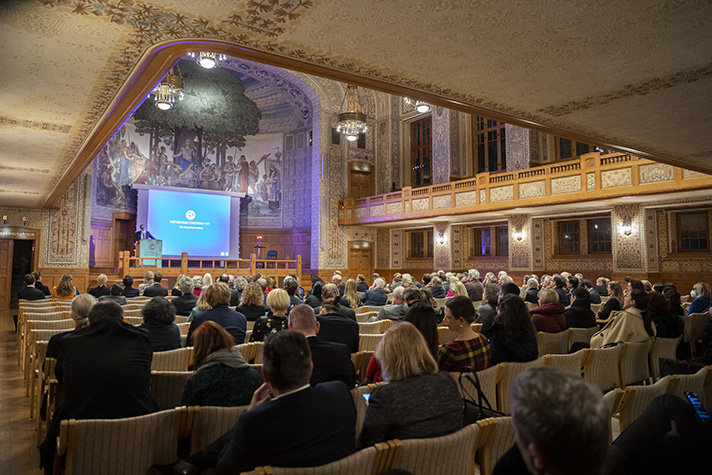
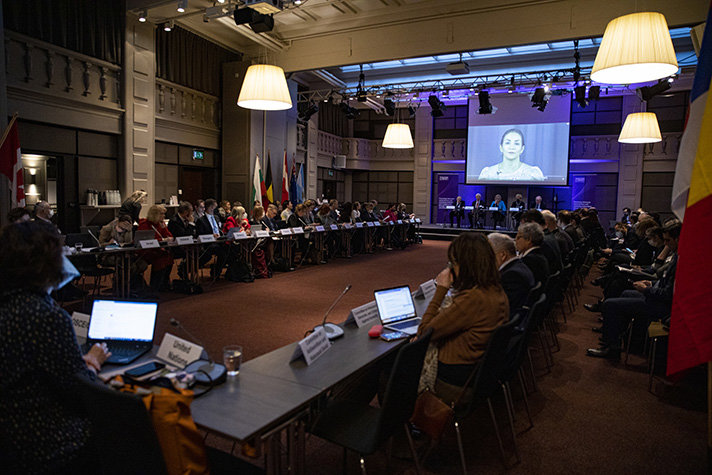
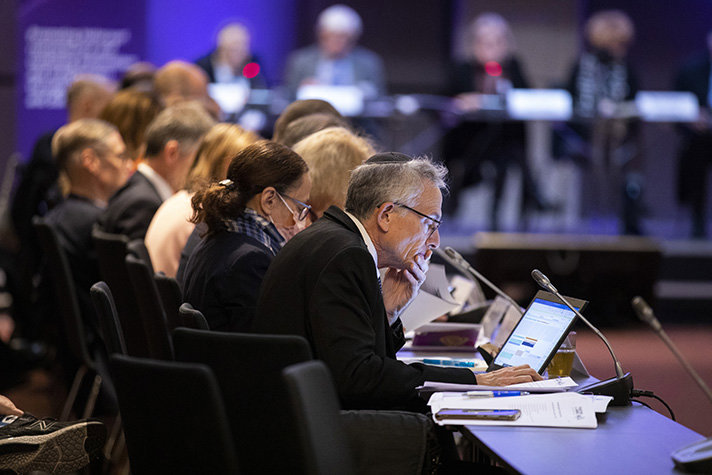
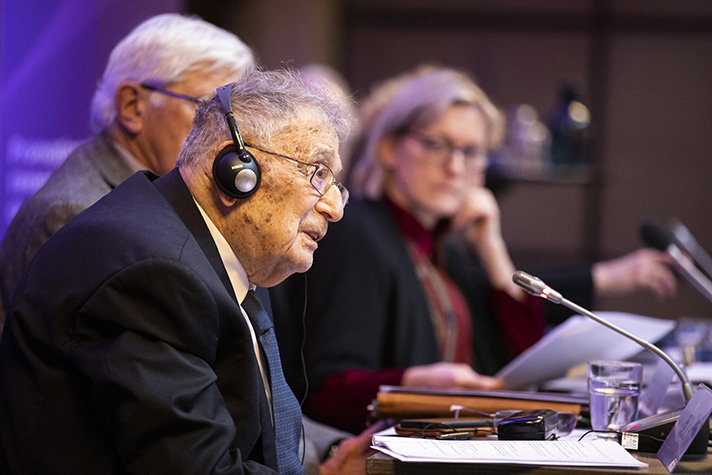
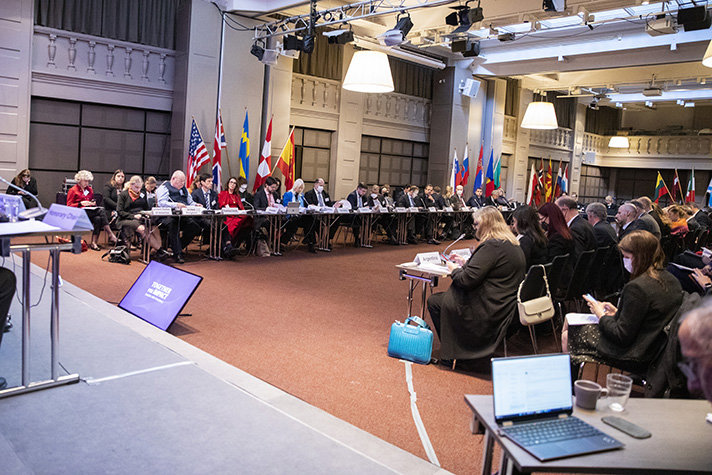
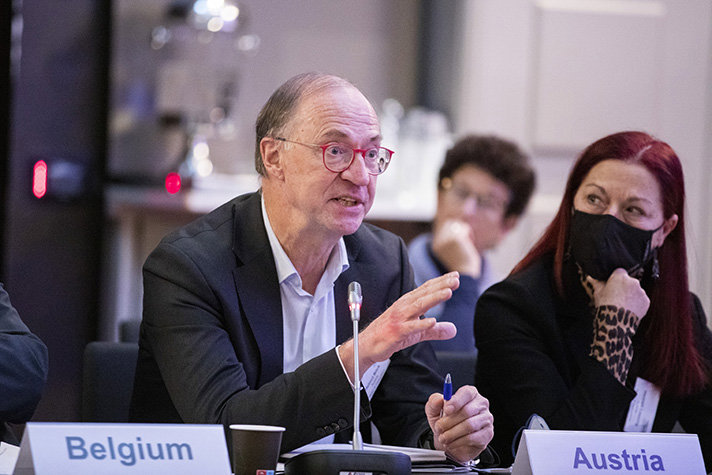
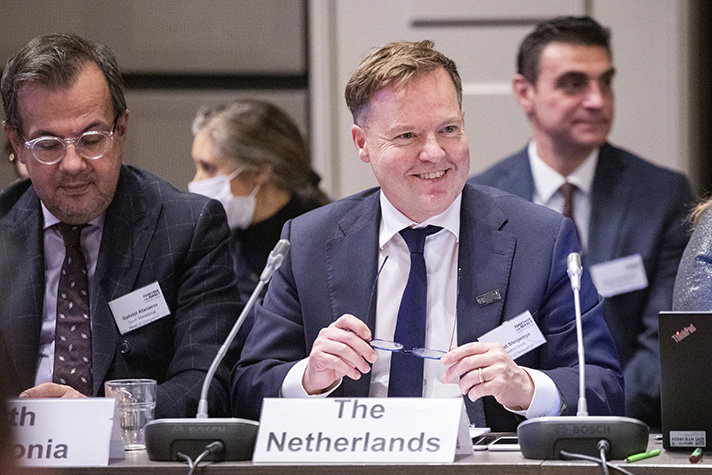
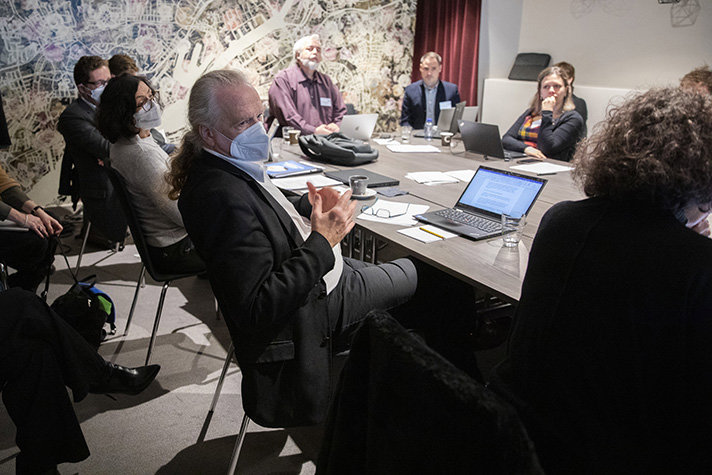
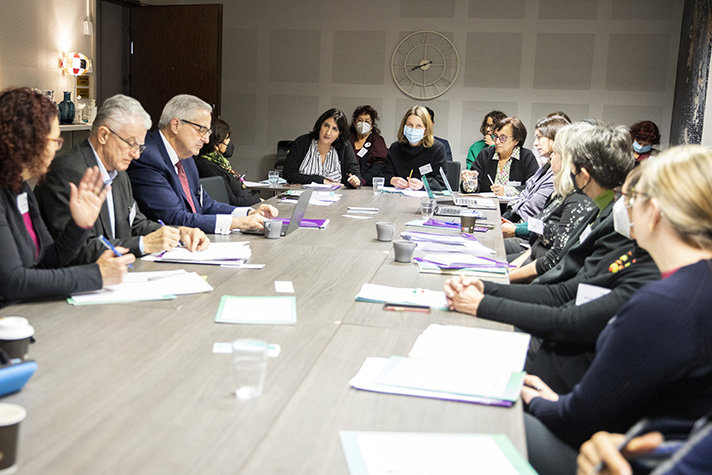
 X
X